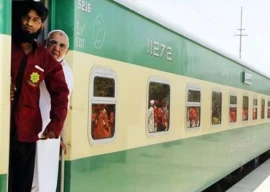
They said that the parliamentarians of the two countries are in the best position to influence public opinion and media by raising the consciousness of the people of the two countries. The process, they said, will pave the way for the two countries to a prosperous future.
The dialogue process, once resumed, should focus on “commonalities and the positives” and promoting a people’s movement for peace and reconciliation between Pakistan and India.
The participants agreed on the need for a follow-up mechanism, which will serve as a focal point and continue to provide support and assistance to the process. PILDAT (Pakistan Institute of legislative Development and Transparency) and PRC in India or a similar body could be asked to serve as co-coordinating agencies to help facilitate such a dialogue between the parliamentarians of the two countries.
As a follow-up to the event, the participants will brief the parliamentarians of both countries about the outcome of the meeting and asked for their input on a follow-up mechanism. They will be able to suggest practical steps for the promotion of the dialogue process between the two countries.
The Indian parliamentarians participating in the dialogue included Mani Shankar Aiyar, Vijay Darda and Naznin Faruque, all members of Rajya Sabha (Indian National Congress). Moreover, Shatrughan Sinha, member Lok Sabha (Bharatiya Janata Party), Assaduddin Owaisi member Lok Sabha (All India Majlis-i-Ittehadul Muslimeen) and Pradeep Majhi member Lok Sabha (Indian National Congress) also took part in the event.
Pakistani parliamentarians engaged in the dialogue included Nayyar Hussain Bukhari, Waseem Sajjad, Senator Jahangir Badar, Salim Saifullah Khan, Ilyas Bilour, Dr Donya Aziz, Khurram Dastagir Khan, Lt Gen (Retd) Abdul Qadir Baloch and others.
Published in The Express Tribune, January 8th, 2011.







1725254039-0/Untitled-design-(24)1725254039-0-270x192.webp)
1732449527-0/Express-Tribune-(4)1732449527-0-270x192.webp)
1732441230-0/BeFunk_§_]__-(49)1732441230-0.jpg)







COMMENTS (3)
Comments are moderated and generally will be posted if they are on-topic and not abusive.
For more information, please see our Comments FAQ